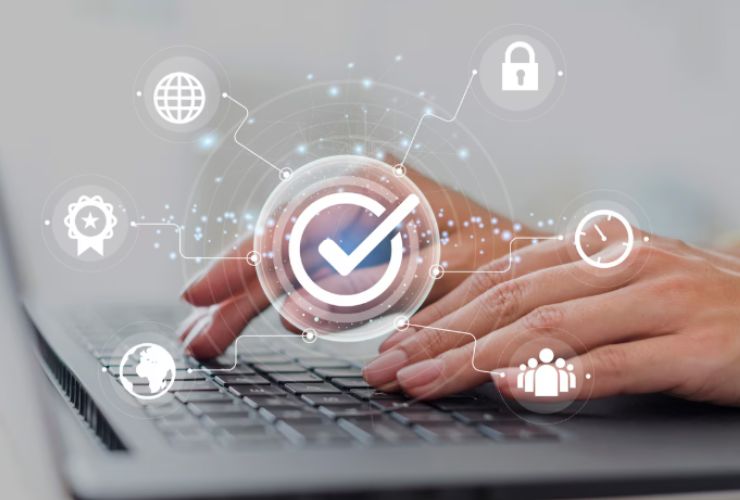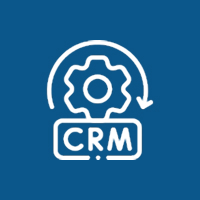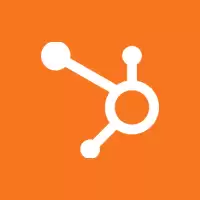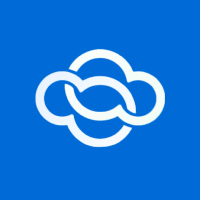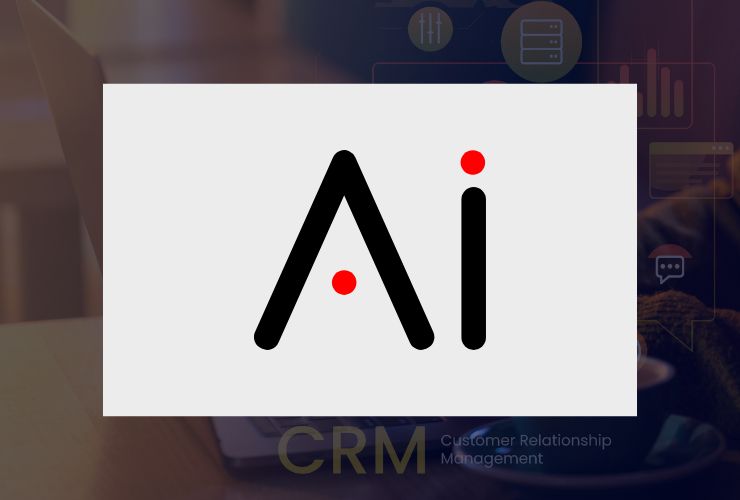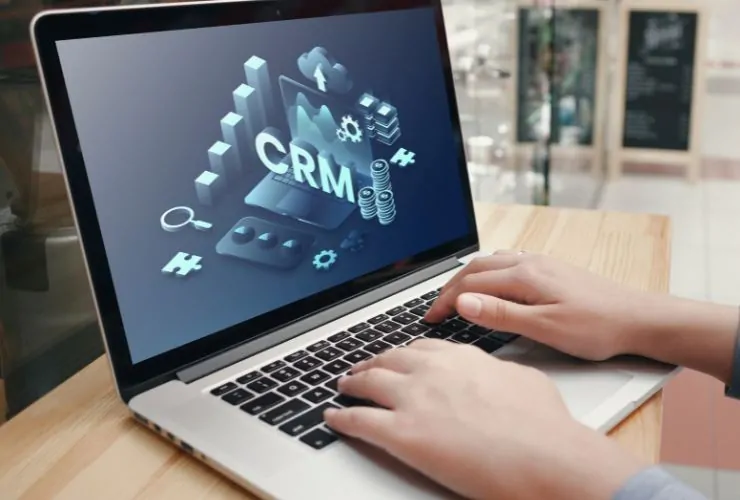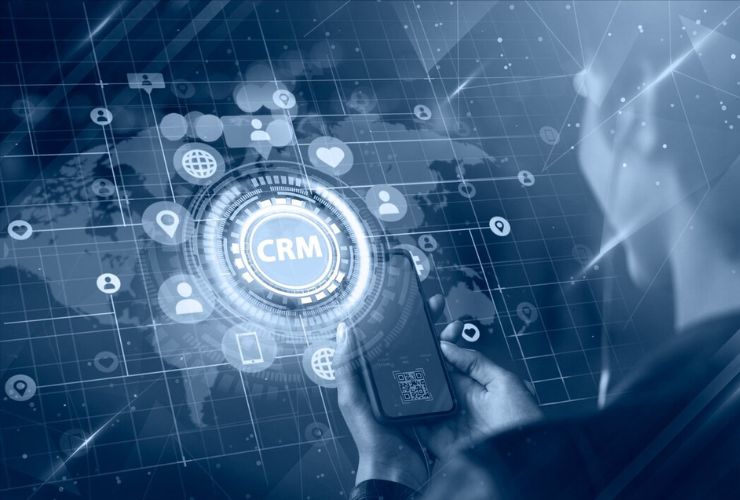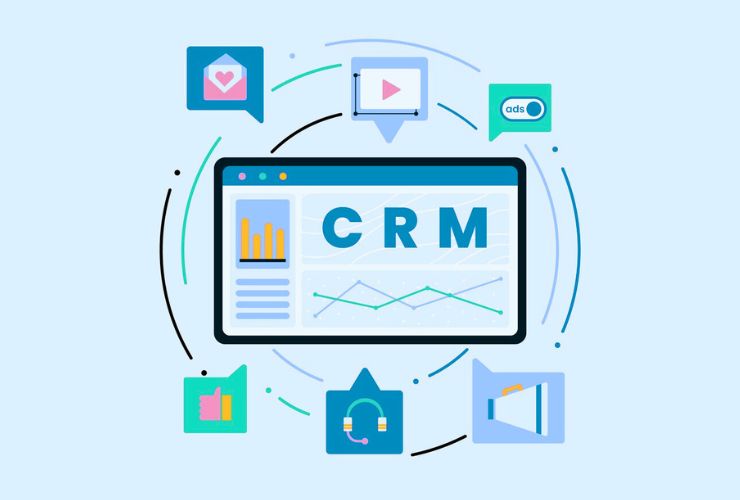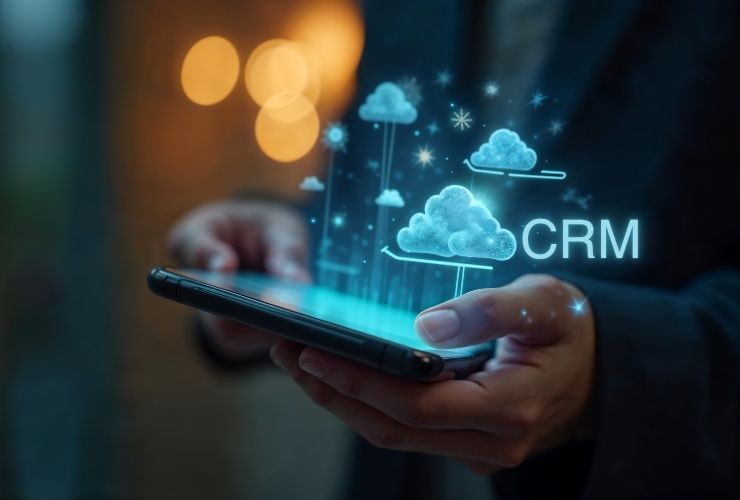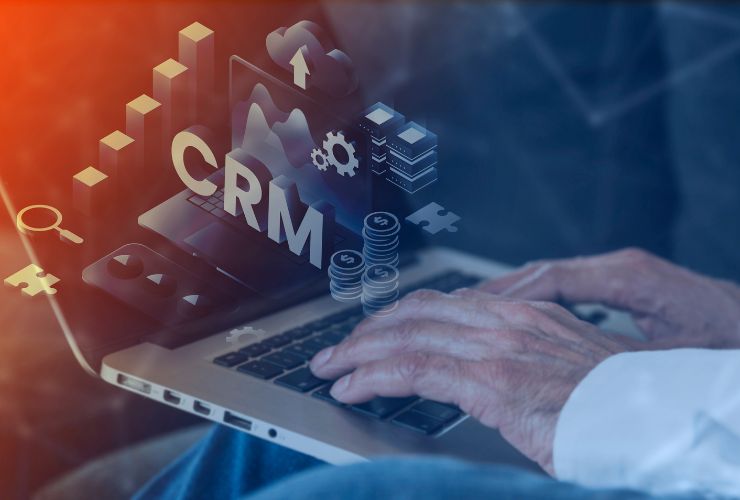Customer Relationship Management (CRM) systems are vital to controlling sensitive customer information and critical business processes. With CRMs storing more personal, financial, and transactional information, it is crucial to protect that data. A security incident, including a data breach, can damage customer confidence, lead to expensive legal penalties, and disrupt daily business functions. For this reason, it is imperative to follow well-established security best practices throughout the development lifecycle to secure your system and the data it holds.
1. Data Encryption
Data encryption is the primary means of encrypting sensitive information stored within a CRM. Encrypting information in transit (traveling over networks) and encrypting at rest (stored in databases or servers) is the first way to ensure that unauthorized parties cannot read or use the data even if they are able to intercept it. Transport Layer Security (TLS) is a standard encryption protocol for protecting data when transmitted, and Advanced Encryption Standard (AES) is the most used encryption standard for data while stored. Effective encryption protects customer data against cyberattacks, protecting against unauthorized access and insider threats.
2. Role-based Access Control (RBAC)
Not every user should be granted the same level of access to your CRM data and features. Role-based Access Control (RBAC) enforces restrictions based on user roles and responsibilities. For example, sales reps may be only allowed to access contact details (with sales history) while Administrators have a larger level of access. RBAC eliminates some of the risks of someone accidentally leaking data, or worse, malicious users intentionally exploiting accepted privileges to hurt the system.
3. Strong Authentication Mechanisms
Passwords may not be sufficient in securing access to your CRM. You may consider implementing Multi-Factor Authentication (MFA), which requires users to give two or more verification factors. MFA, for example, requires the user to input a password and a one-time code sent to a mobile device. MFA reduces the chances of unauthorized access to a substantial degree; especially when passwords are compromised via phishing or weak password choices.
4. Secure API Integration
Most modern CRMs support all kinds of third-party integrations, e.g. marketing tools, payment gateways, or analytics services. Each of these integrations can provide an adversary with an opportunity to secure access into your environment, so it’s important to treat these API integrations with extraordinary care. Developers may want to include authentication tokens, rate limiting, and most importantly, input validation to prevent injection attacks.
5. Ongoing Security Audits and Penetration Testing
Security is a process that never ceases. Regular security audits will reveal potential vulnerabilities that are present in your CRM infrastructure, software, and configurations; and conducting penetration tests will allow you to learn about any exploitable vulnerabilities that could be the basis of real attacker behavior. Remediation of your findings will improve your overall security posture while also demonstrating due diligence in the assessment and protection of the customer’s data, which is necessary for regulatory compliance.
6. Backups and Recovery Plans
Data loss can happen at any moment; it could be due to a cyberattack (e.g., ransomware), hardware loss, or human error. Automated backups of your CRM will ensure that a relevant copy of your CRM data exists. A tested disaster recovery plan that is utilized by the business will allow you to restore CRM functionality quickly with as little disruption as possible. Ongoing patch assessments of the quality of your backups and recovery will reduce the risk that you suffer data loss and will facilitate business continuity.
7. Secure Development Process
Security must be at the forefront of all your CRM development. In a secure coding practice, developers ensure validation and sanitization of all inputs from the user to defend against common vulnerabilities such as SQL injection and Cross-Site Scripting (XSS). Static code analysis tools and dynamic code analysis tools are available to help spotlight security issues and vulnerabilities of an application early in the development life cycle and enable developers to manage their risks before deploying a product. Choosing security as part of the development process will provide a good foundation for a secure CRM.
8. Compliance with Data Protection Regulations
Compliance with data protection statutes, such as GDPR (General Data Protection Regulation), HIPAA (Health Insurance Portability and Accountability Act), and CCPA (California Consumer Privacy Act), is not optional; it is mandatory for many businesses. Verifying that your CRM tool collects, processes, and stores customer data in accordance with applicable law not only protects the privacy rights of your customers, but it also frees your business from the risk of considerable fines and potential lawsuits.
9. User Training and Awareness
Even the most secure systems can fail if users make mistakes or lack awareness. Train users to spot phishing emails, create strong passwords, and follow your company’s security policies. Encourage employees to report suspicious behavior or emails right away. Catching threats early reduces damage and builds a security-first mindset across your team. Security awareness programs educate users and keep them engaged and vigilant while also allowing users to better understand their role in maintaining CRM security.
Conclusion
A commitment to CRM security does not end with the implementation of an encryption scheme or a strong username and password policy. Security must encompass a holistic approach – strong encryption combined with access controls and continuous monitoring to the inclusion of user education – to protect the company’s information asset and it’s customers. By aggressively championing these best practices, businesses can protect the sensitive information residing in CRM’s, and ultimately uphold the trust that customers extend in every business transaction. More than just a technical requirement, a secure CRM is a strategic opportunity for organizations to facilitate reliable and sustained customer relationships.
Protect Your CRM with Best-in-Class Security
Build a secure, resilient CRM platform that safeguards your data and strengthens customer trust. Partner with experts to implement proven security practices, compliance standards, and ongoing protection.
Frequently Asked Questions
CRM systems store sensitive customer and business data, so strong security protects against data breaches, unauthorized access, and regulatory penalties.
Best practices include strong authentication, role-based access control, encrypted data storage and transmission, regular audits, and secure API integrations.
RBAC ensures each user only has access to the features and data necessary for their role, reducing the risk of internal threats and accidental misuse.
Regular security assessments, vulnerability scans, and code reviews help identify risks early and ensure best practices remain effective as threats evolve.

